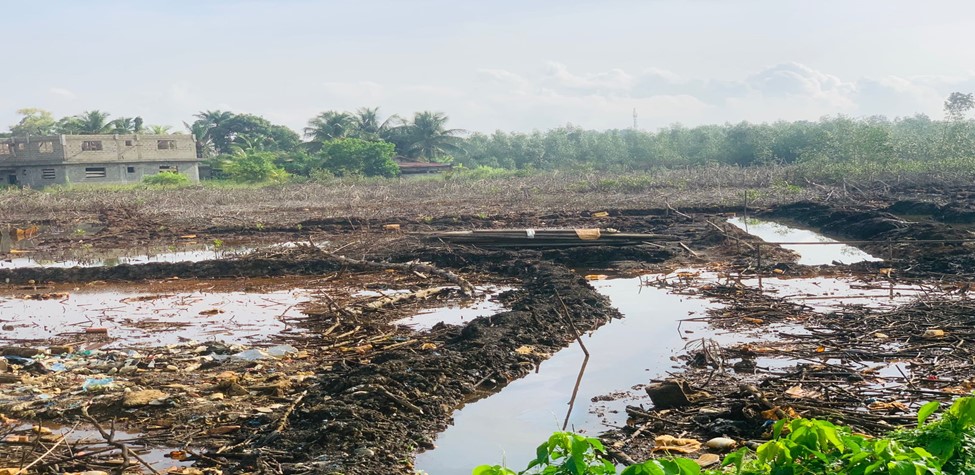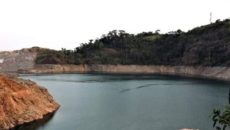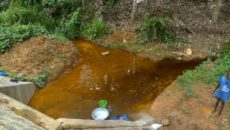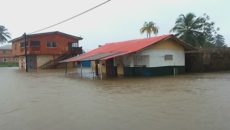CONGO TOWN, Montserrado − Residents of Pagos Island are drawing attention to the frequent destruction of mangroves, exposing the community to the impact of heavy rains and floods.
Residents say the group of trees and shrubs that serve as natural protection against erosion and flooding during extreme weather conditions is being continuously cut down for wood and other purposes, posing serious threats to the community.
The destruction of the mangrove swamps may also pose a danger to the wild array of wildlife, such as birds, fish, and plants.
Block A community chairman Daniel Wright blamed the situation on the failure of the Environmental Protection Agency to take serious actions to stop the destruction of the natural vegetation. Despite several calls, Wright said the EPA has done nothing to arrest the situation.
As a local community chairman, he said he lacks the authority to stop people from doing anything on the island, although he sees the violations. He said it is frustrating that the EPA has failed even to empower community members to serve as its agents to protect the environment.
The community leader feared that the clearance of the mangroves would lead to a massive release of carbon dioxide into the atmosphere, further contributing to climate change.
Esther Zeze, a single mother who has resided on the island for nearly 20 years, also frowns on the destruction of the environment. She blamed the issue on poverty and the lack of a better source of livelihoods.
“Some go there to cut firewood to cook; others sell to people who dry fish,” she said. “That’s how they survive. Others go look for ‘kiss meat’ [periwinkles], and others to make gardens.”
She called on the government to educate citizens on the danger of degrading the environment and provide empowerment schemes that will give them alternative sources of survival.
Meanwhile, the EPA’s focal person on the Ramsar Convention on Wetlands, Levi Z. Piah, said he was working in collaboration with relevant institutions, including the city governments of Monrovia and Paynesville to enhance the protection of wetlands in both cities.
Liberia became a party to the Ramsar Convention on November 2, 2003, assuring its commitment to protect and sustainably manage wetlands, especially those declared Ramsar Sites of International significance.
Recently, the National Disaster Management Agency disclosed that it lacked the financial capacity to carry out its function; the budget was still being reviewed by the legislature at the time.
The agency’s director of communications, Achievego Manneh Doe, warned citizens against building on waterways and encouraged planting mangroves while promoting a clean drainage system to reduce the impact of windstorms, flooding, and other natural disasters.
Featured photo by Christophina P. Nyanneh



